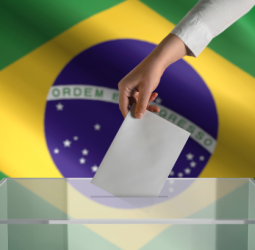Informational Article: A Deeper Dive into Election Coverage
Elections are an integral part of any democratic society. They provide citizens with the opportunity to choose their leaders and shape their future. However, amidst the chaos and tension surrounding elections, it can be challenging to get accurate and reliable information. That's where election coverage comes in.
Election coverage refers to the media's reporting and analysis of elections. It provides citizens with crucial information about candidates, policies, and voting processes. In this article, we will take a deeper dive into election coverage and explore its importance in shaping our democracy.
The Role of Media in Elections
Media plays a crucial role in elections, acting as a bridge between candidates and voters. Through various forms of media, such as television, radio, newspapers, and the internet, citizens can access different viewpoints and make informed decisions. The media also holds candidates accountable for their actions and statements, ensuring transparency and fairness in the election process.
Types of Election Coverage
There are three main types of election coverage: horse-race, issues-based, and investigative.
Horse-race coverage focuses on the perceived winners and losers of the election. It often features polling results and candidates' standings in the race. While this type of coverage can be exciting, it can also lead to a focus on superficial aspects of the election, such as candidate personalities, rather than policies and issues.
Issues-based coverage, on the other hand, delves into the candidates' positions on various issues such as healthcare, education, and the economy. This type of coverage helps voters understand the policies and ideologies of the candidates and how they align with their own beliefs.
Investigative coverage involves in-depth research and analysis of candidates' backgrounds, actions, and statements. It aims to uncover any potential scandals or controversies that may affect a candidate's credibility. Investigative coverage plays a crucial role in holding candidates accountable and ensuring transparency in the election process.
The Importance of Election Coverage
Election coverage is essential for a healthy democracy for several reasons:
1. Educating voters: Through election coverage, voters can access information about the candidates, their policies, and the issues at stake. This knowledge allows them to make informed decisions at the ballot box.
2. Encouraging political participation: Election coverage can inspire citizens to participate in the election process by voting, volunteering, or engaging in political discussions. It empowers citizens to have a voice in their government and shape their community's future.
3. Holding candidates accountable: The media's role in investigating and reporting on candidates' actions and statements helps hold them accountable for their promises and actions. This ensures transparency and fairness in the election process.
4. Fostering a diverse range of opinions: Election coverage provides a platform for diverse voices, ensuring a range of perspectives are included in political discussions. This can result in a more inclusive and well-rounded election process.
Challenges in Election Coverage
Despite its importance, election coverage faces several challenges. These include:
1. Bias and misinformation: Sometimes, media outlets can have a bias towards a particular candidate or party, leading to one-sided coverage. Also, with the rise of fake news, misinformation can spread quickly, making it challenging to distinguish fact from fiction.
2. Overemphasis on polls and horse-race coverage: As mentioned earlier, horse-race coverage can lead to a focus on superficial aspects of the election, rather than policies and issues. This can be unhelpful for voters and can contribute to a sense of apathy towards the election process.
3. Lack of time and resources: Covering an election requires significant resources, such as time, money, and personnel. Smaller media outlets may struggle to provide comprehensive coverage, leading to a lack of information for citizens to make informed decisions.
Conclusion
In conclusion, election coverage plays a crucial role in shaping our democracy. It educates voters, encourages political participation, holds candidates accountable, and fosters diverse opinions. However, challenges such as bias, misinformation, and lack of resources can hinder its effectiveness. As responsible citizens, it is essential to seek out reliable and unbiased sources of election coverage and use our votes to make a positive impact on our society.
Elections are an integral part of any democratic society. They provide citizens with the opportunity to choose their leaders and shape their future. However, amidst the chaos and tension surrounding elections, it can be challenging to get accurate and reliable information. That's where election coverage comes in.
Election coverage refers to the media's reporting and analysis of elections. It provides citizens with crucial information about candidates, policies, and voting processes. In this article, we will take a deeper dive into election coverage and explore its importance in shaping our democracy.
The Role of Media in Elections
Media plays a crucial role in elections, acting as a bridge between candidates and voters. Through various forms of media, such as television, radio, newspapers, and the internet, citizens can access different viewpoints and make informed decisions. The media also holds candidates accountable for their actions and statements, ensuring transparency and fairness in the election process.
Types of Election Coverage
There are three main types of election coverage: horse-race, issues-based, and investigative.
Horse-race coverage focuses on the perceived winners and losers of the election. It often features polling results and candidates' standings in the race. While this type of coverage can be exciting, it can also lead to a focus on superficial aspects of the election, such as candidate personalities, rather than policies and issues.
Issues-based coverage, on the other hand, delves into the candidates' positions on various issues such as healthcare, education, and the economy. This type of coverage helps voters understand the policies and ideologies of the candidates and how they align with their own beliefs.
Investigative coverage involves in-depth research and analysis of candidates' backgrounds, actions, and statements. It aims to uncover any potential scandals or controversies that may affect a candidate's credibility. Investigative coverage plays a crucial role in holding candidates accountable and ensuring transparency in the election process.
The Importance of Election Coverage
Election coverage is essential for a healthy democracy for several reasons:
1. Educating voters: Through election coverage, voters can access information about the candidates, their policies, and the issues at stake. This knowledge allows them to make informed decisions at the ballot box.
2. Encouraging political participation: Election coverage can inspire citizens to participate in the election process by voting, volunteering, or engaging in political discussions. It empowers citizens to have a voice in their government and shape their community's future.
3. Holding candidates accountable: The media's role in investigating and reporting on candidates' actions and statements helps hold them accountable for their promises and actions. This ensures transparency and fairness in the election process.
4. Fostering a diverse range of opinions: Election coverage provides a platform for diverse voices, ensuring a range of perspectives are included in political discussions. This can result in a more inclusive and well-rounded election process.
Challenges in Election Coverage
Despite its importance, election coverage faces several challenges. These include:
1. Bias and misinformation: Sometimes, media outlets can have a bias towards a particular candidate or party, leading to one-sided coverage. Also, with the rise of fake news, misinformation can spread quickly, making it challenging to distinguish fact from fiction.
2. Overemphasis on polls and horse-race coverage: As mentioned earlier, horse-race coverage can lead to a focus on superficial aspects of the election, rather than policies and issues. This can be unhelpful for voters and can contribute to a sense of apathy towards the election process.
3. Lack of time and resources: Covering an election requires significant resources, such as time, money, and personnel. Smaller media outlets may struggle to provide comprehensive coverage, leading to a lack of information for citizens to make informed decisions.
Conclusion
In conclusion, election coverage plays a crucial role in shaping our democracy. It educates voters, encourages political participation, holds candidates accountable, and fosters diverse opinions. However, challenges such as bias, misinformation, and lack of resources can hinder its effectiveness. As responsible citizens, it is essential to seek out reliable and unbiased sources of election coverage and use our votes to make a positive impact on our society.
You Must be Registered Or Logged in To Comment Log In?



 politics live casino
politics live casino















